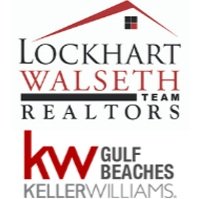Is It Legal to Run an Airbnb in St. Pete Beach or Pass-a-Grille?
If you're thinking about turning your beach property into a short-term rental—or buying one that already is—you're probably asking: Is it legal to run an Airbnb in St. Pete Beach or Pass-a-Grille?
The answer? It depends on the zoning, the length of the rental, and the exact location of your property.
Here’s what you need to know before listing your home on Airbnb or VRBO in St. Pete Beach, Pass-a-Grille, or anywhere in Pinellas County.
🔍 Short-Term Rental Laws in St. Pete Beach
In St. Pete Beach, short-term rentals (defined as rentals under 30 days) are regulated by zoning ordinances. Here's the breakdown:
✅ Short-term rentals are allowed—but only in specific zoning districts.
Most short-term vacation rentals are allowed in the Tourist District (T-zoning), which includes many condos and homes along Gulf Blvd and in parts of Pass-a-Grille. However, many residential neighborhoods do not permit rentals under 30 days.
⚠️ You must register your property.
To operate legally, you’ll need to:
Register with the city of St. Pete Beach
Obtain a Florida DBPR license
Collect and remit state and local tourist development taxes
❌ Violations carry fines.
Renting a home for fewer than 30 days in a non-approved zone could result in code enforcement action, fines, or even legal action.
📍 What About Pass-a-Grille?
Pass-a-Grille is part of St. Pete Beach, but zoning rules vary street by street. Some streets (especially west of Gulf Blvd near 8th Ave) are zoned for short-term rentals, while others only allow 30-day or longer stays.
If you're looking at buying a vacation rental in Pass-a-Grille, always check:
The exact zoning designation of the property
Whether short-term rentals are allowed by right or only with special permits
HOA or condo association rules (many restrict rentals under 30 or 90 days)
🛑 Avoid These Common Mistakes
Don’t assume your neighbor’s Airbnb is legal. They might be flying under the radar—or grandfathered in under old rules.
Don’t rely on Airbnb or VRBO’s platform alone. Just because they let you list it doesn’t mean you’re compliant with local laws.
Don’t skip professional advice. Real estate agents familiar with investment properties in Pinellas County can help you avoid expensive missteps.
✅ How to Legally Operate a Short-Term Rental in St. Pete Beach
To run an Airbnb or vacation rental legally, you’ll need to:
Verify zoning and permitted use with the City of St. Pete Beach
Apply for a St. Pete Beach rental license
Register with the Florida Department of Business & Professional Regulation (DBPR)
Set up tax collection and remittance for:
Florida sales tax
Pinellas County tourist development tax
Comply with fire, safety, and occupancy standards
Bottom Line: It Can Be Legal—If You Do It Right
Yes, you can operate an Airbnb legally in St. Pete Beach and Pass-a-Grille, but only in designated zones and with the proper licenses and procedures in place.
Whether you're looking to rent out your home part-time or buy a fully operational vacation rental in Pinellas County, make sure you understand the local laws before making a move.
Thinking of buying or selling an Airbnb property in St. Pete Beach?
I’ve helped clients navigate everything from zoning questions to profitable sales of fully booked short-term rentals. Let’s talk about your goals—and how to reach them legally and strategically.
